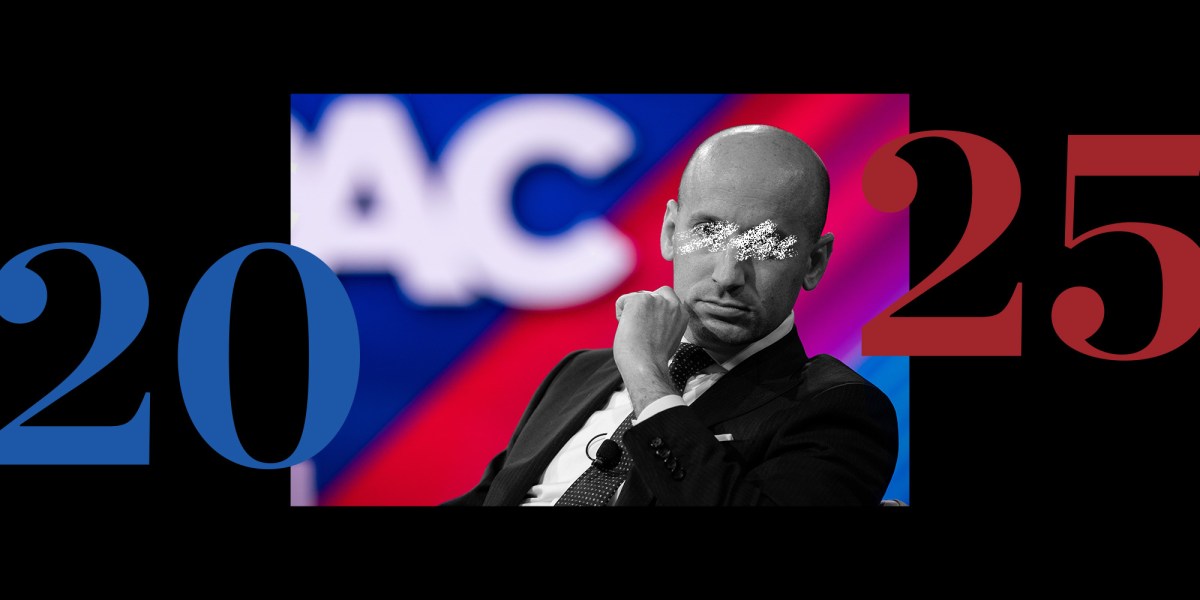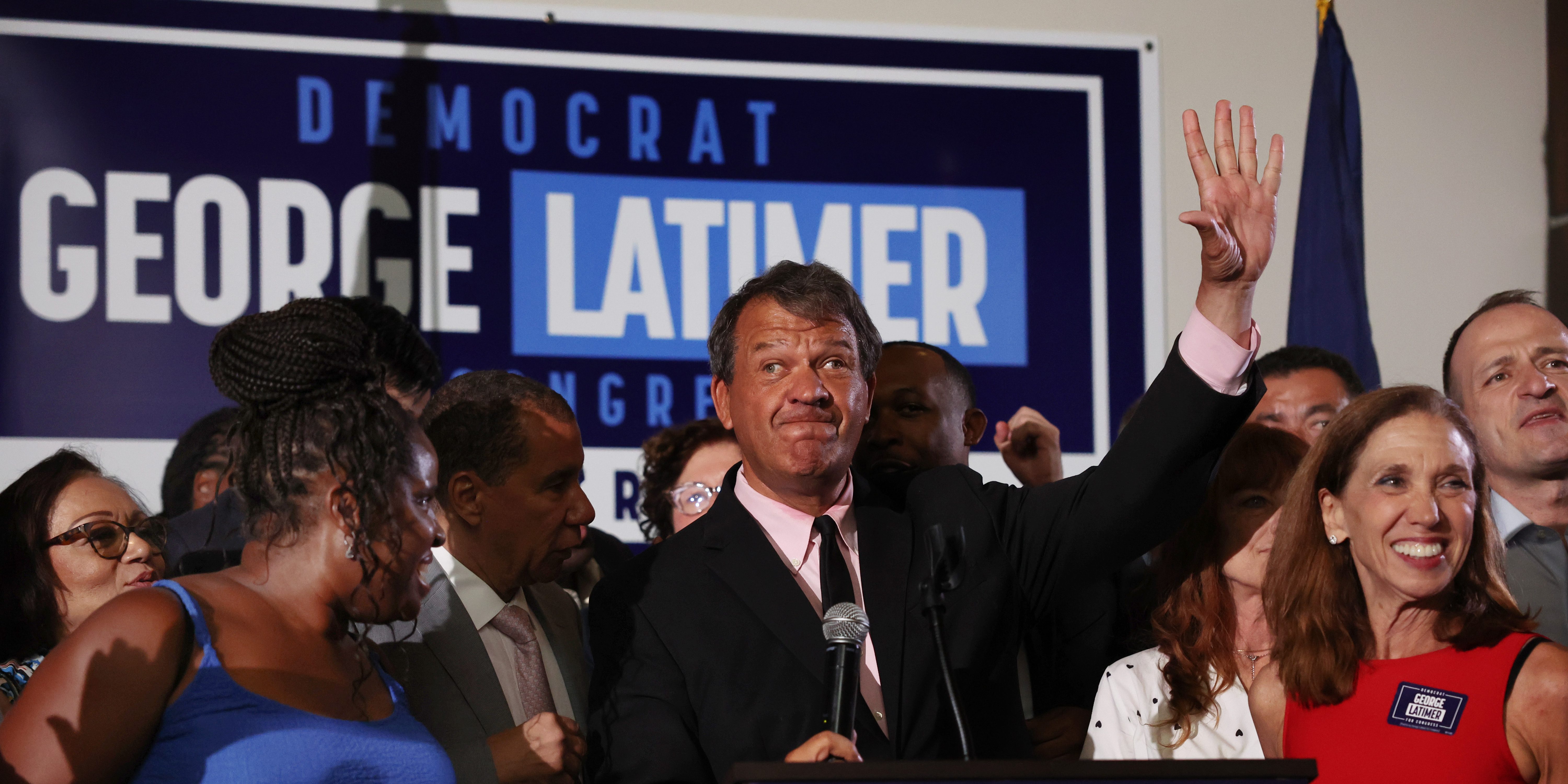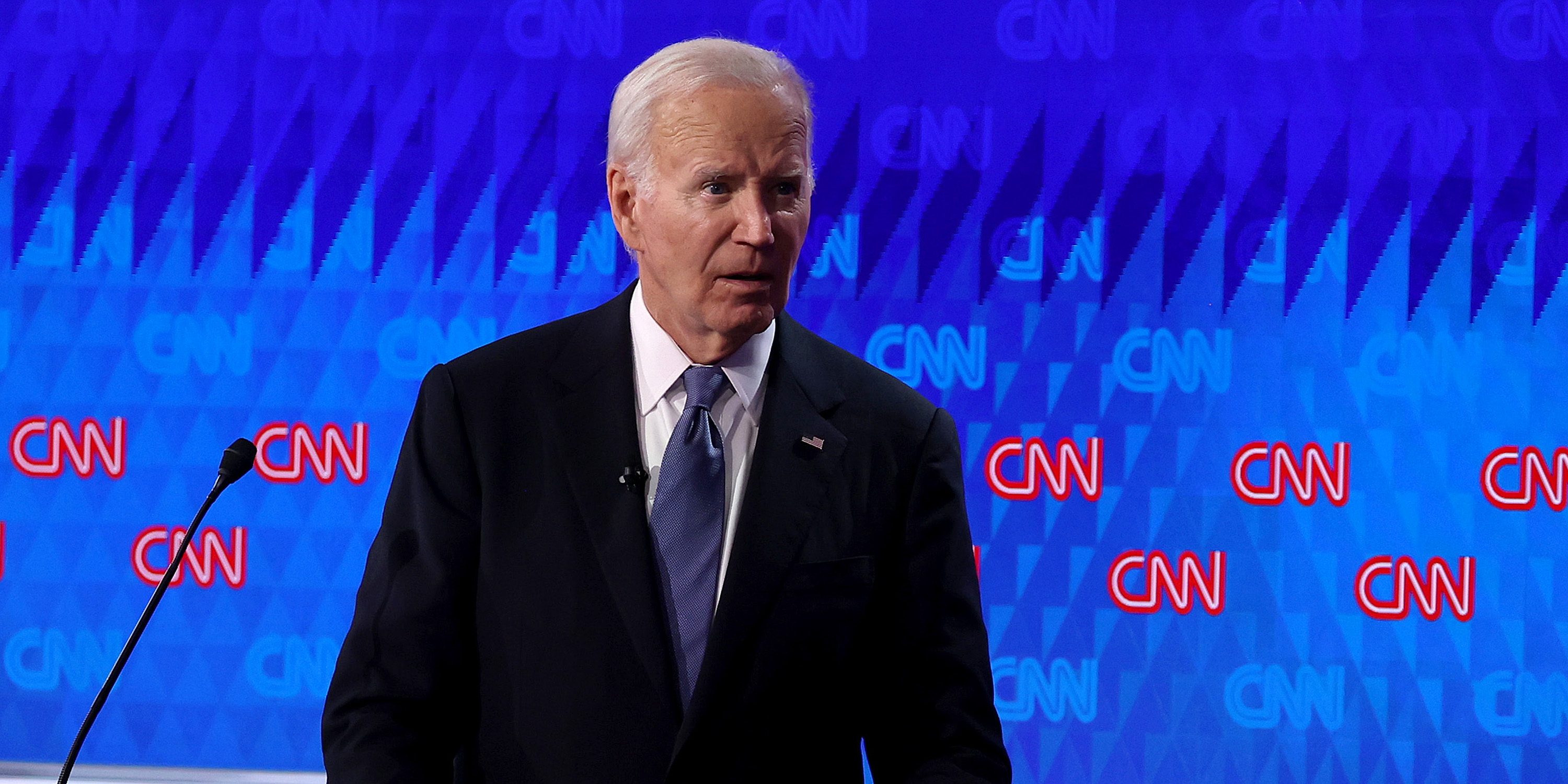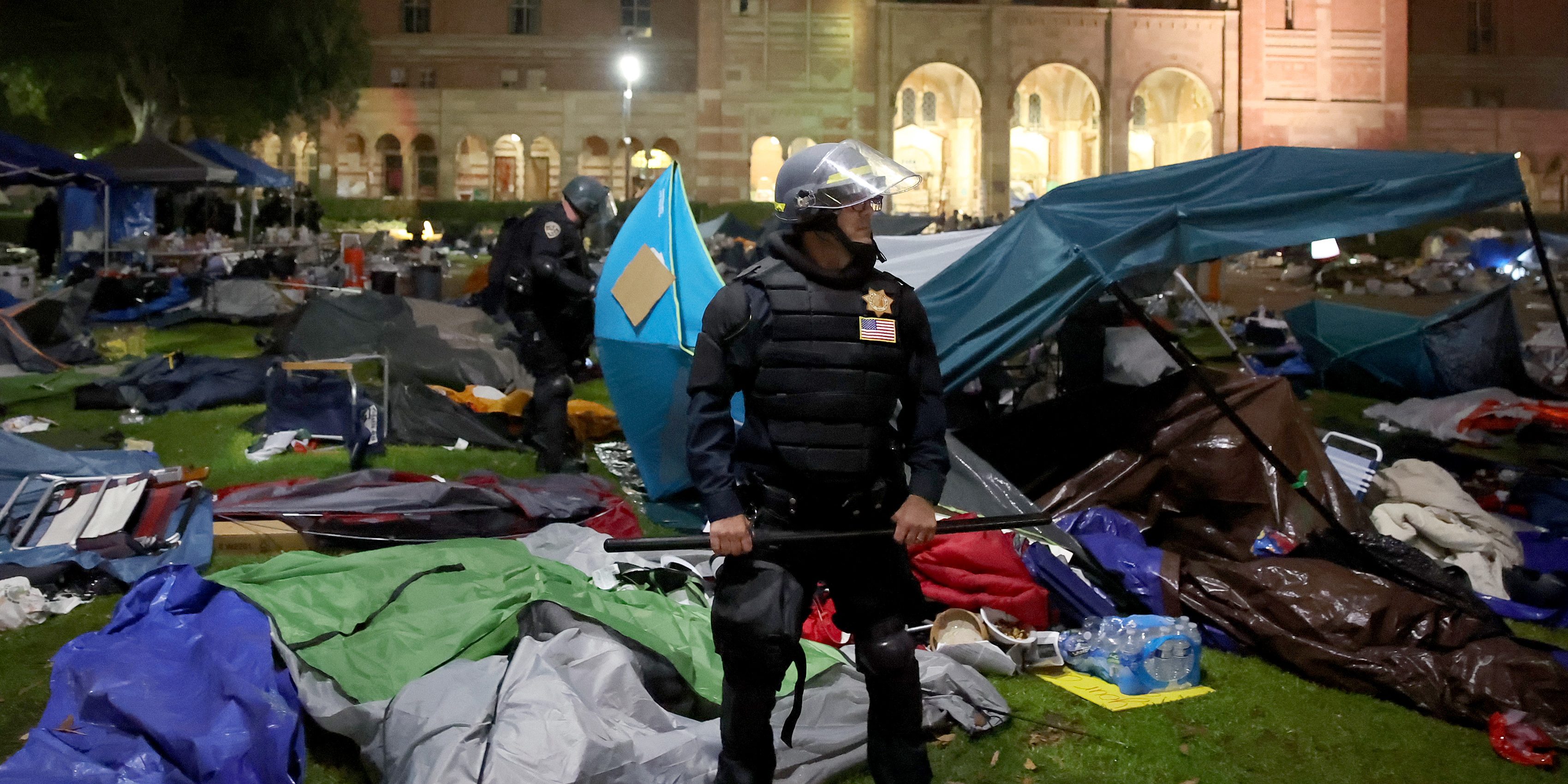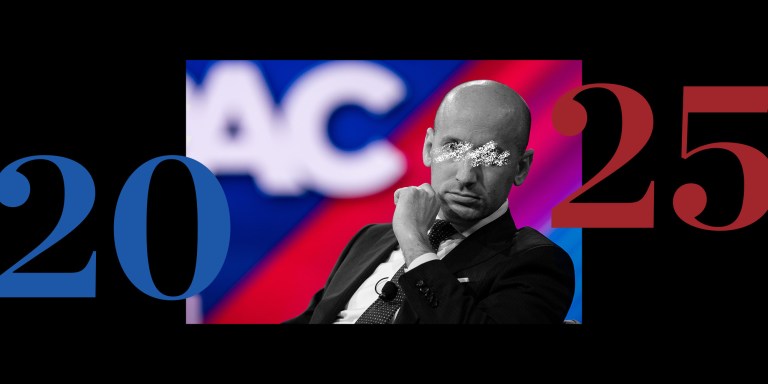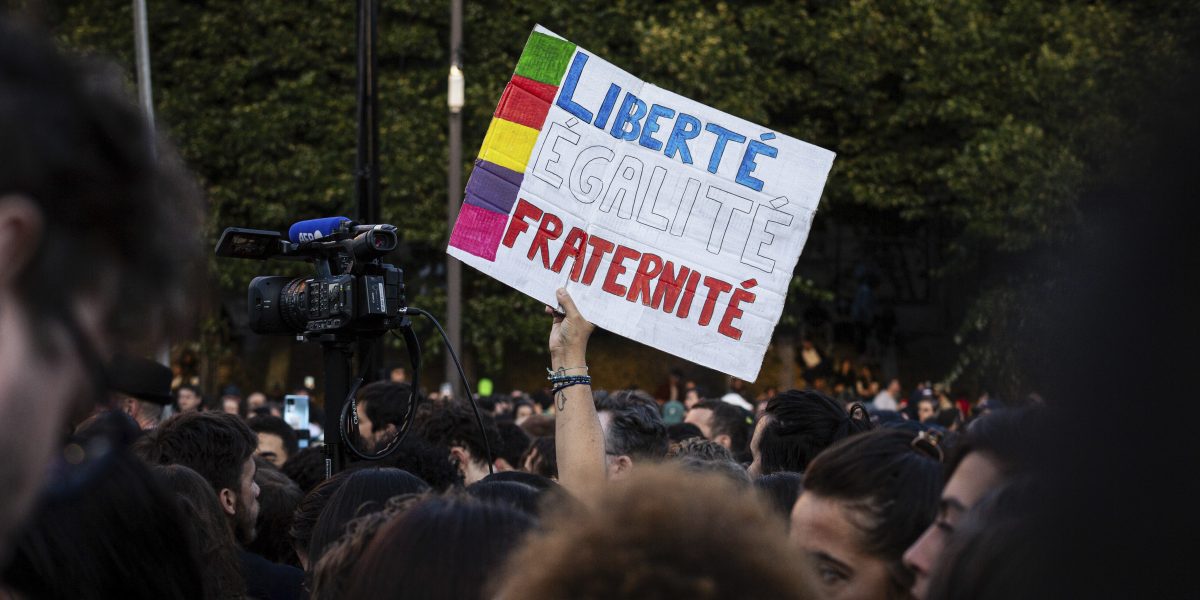
Immediately following the surprise victory of left party coalition New Popular Front in France’s parliamentary elections last week, Jean-Luc Mélenchon — the leftist leader of the bloc’s largest party, France Unbowed — vowed to see France “recognize the Palestinian state as soon as possible.”
France’s far-right National Rally party, alongside conservative centrists, had spent weeks painting the left’s support of Palestine as an electoral poisoned pill. In attacks all too familiar in the U.S., they conflated anti-Zionism with antisemitism, slamming Israel’s critics as antisemites. Israeli officials explicitly backed the far-right party. In this last election, at least, it didn’t work to prevent left-wing success.
In Britain, too, the centrist Labour Party’s landslide victory was tempered in five constituencies, where independent candidates with pro-Palestinian platforms defeated Labour candidates. Labour’s former leader, Jeremy Corbyn, won his North Islington, London, seat with ease; Corbyn was famously ousted from Labour when the party’s conservative wing and British media weaponized charges of antisemitism against the party’s left flank.
If there’s a lesson to be learned in the U.S. from the success of pro-Palestinian candidates in France and Britain, we can be grimly sure that no Democrat in November’s presidential election will learn it. President Joe Biden’s unfettered support of Israel and its genocidal Gaza war is not only a gross moral failure but also an electoral risk, particularly in crucial swing-state Michigan and for young voters in general. But his campaign refuses to change course on the issue. Even if the senescent president is replaced as the Democratic nominee, there’s scant chance that any successor will embrace a platform of Palestinian solidarity or even robust ceasefire demands. This, despite the fact that 77 percent of Democratic voters and two-thirds of voters in the U.S. support a permanent ceasefire.
The French and British results should, or at least could, however, be a lesson for left-wing Democrats to continue to fight against the vicious efforts of groups like the American Israel Public Affairs Committee, AIPAC, to crush Palestine-supportive candidates. This is especially important following the defeat of progressive Rep. Jamaal Bowman, D-N.Y., after pro-Israel groups poured an unprecedented $15 million into the primary race to unseat the pro-Palestine incumbent.
The astroturfed campaign against Bowman should not be heeded as a warning by progressive Democrats to abandon support for Palestine, or to temper their opposition to Israel’s Gaza onslaught. Rather, it should be a jolt to redouble organizing efforts in a united front against AIPAC’s interventions. Top Democrats did little to defend Bowman against the well-funded attack. It is somewhat encouraging that members of the Democratic mainstream have put more support behind AIPAC’s next target, Missouri Rep. Cori Bush, for her primary next month; this support should be stronger still.
The French example is instructive here: Only through a highly strategic coalition of center-to-left candidates have the far right been kept from parliamentary leadership. Centrists did not throw their coalition partners on the left under the bus for their support for Palestine. The bloc can hardly be compared to the Democratic Party with its conservative, pro-Israel mainstream. Yet Democrats face a similar challenge: Win the trust of vast numbers of Muslim and Arab voters and young people, or stand with AIPAC — a lobby that has no problem raising millions for the Republican extreme right.
It would go too far to say the recent French and British election results speak to the unambiguous popularity of Palestinian solidarity — too many variables were at play in both instances to draw simple conclusions. In Britain, desire to unseat the ruinous Conservative Party drove support for new Prime Minister Keir Starmer’s uninspiring Labour. In France, strategic coordination between the center and left in the election’s second round was key. The New Popular Front is a fraught coalition, and internal disagreements over Israel, among other issues, will no doubt threaten its fragile cohesion. The bloc also did not win an absolute majority, despite winning the largest number of seats, and thus faces huge roadblocks to pushing through its political program. Remaining a united front is the only chance the left parties have — and that means support for Palestine cannot be pushed aside.
The fact that support for Palestine can be shown as helpful, rather than harmful, to electoral success is worth stressing.
This is, of course, a vile state of affairs that requires an appeal to realpolitik to see candidates stand against genocide, occupation, and apartheid. Since the need to stop Israel’s intolerable war remains as urgent as ever, however, the fact that support for Palestine can be shown as helpful, rather than harmful, to electoral success is worth stressing. At the very least, leftist candidates and leaders in France and Britain like Mélenchon and Corbyn have modeled powerful examples for U.S. progressives: In the face of bad-faith attacks, and even party expulsions, aimed a quashing support for Palestine, they remained steadfast on the right side of history.

